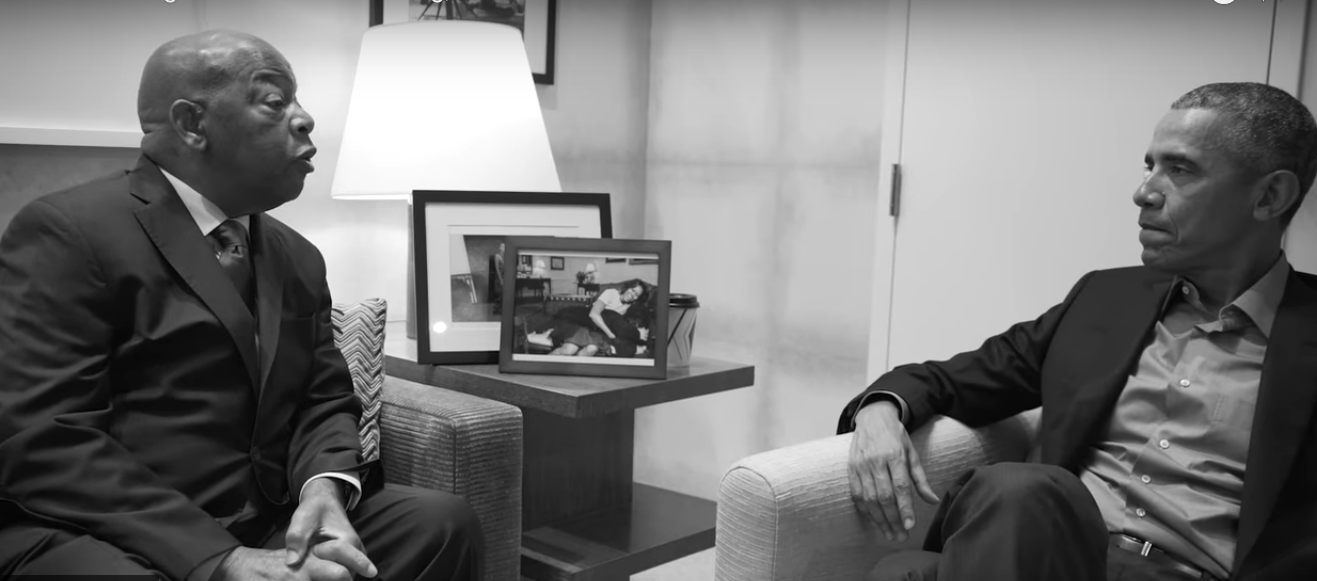Obama Releases Moving MLK Tribute Video
The former president discusses MLK's legacy with John Lewis and a group of high school students in a video issued by the Obama Foundation.
On April 4, 1968, Martin Luther King Jr. was assassinated in Memphis, Tenn. To commemorate the 50th anniversary of his death, former President Barack Obama discusses the renowned activist’s legacy with the prominent politician and civil rights leader John Lewis and a group of high school students in a video released by the Obama Foundation.
“I thought that this would be a good opportunity to connect the people who inspired me with the next generation of young leaders who are going to be doing outstanding things themselves,” Obama tells the students, who attend a high school for boys of color.
Obama also encourages the students not to let concerns about controversy stop them from making their voices heard.
“If you are speaking on behalf of social justice, then by definition there’s going to be some controversy because if it wasn’t controversial, then somebody would have already fixed it,” he says. “Dr. King was controversial, but he studied and thought and crafted what he had to say. He knew, when he spoke, he was expressing a truth as well as he could know it.”
Toward the end of the video, Lewis tells the story of a Ku Klux Klan member who attacked him in 1961. In 2009, the former Klan member and his son came to Capitol Hill to apologize to Lewis.
“The two of them hugged me, and I hugged them back,” Lewis says. “That’s the power of the way of peace and love, and the power of the philosophy of nonviolence. You respect the dignity and the worth of every human being.”
Independent journalism is under threat and overshadowed by heavily funded mainstream media.
You can help level the playing field. Become a member.
Your tax-deductible contribution keeps us digging beneath the headlines to give you thought-provoking, investigative reporting and analysis that unearths what's really happening- without compromise.
Give today to support our courageous, independent journalists.





